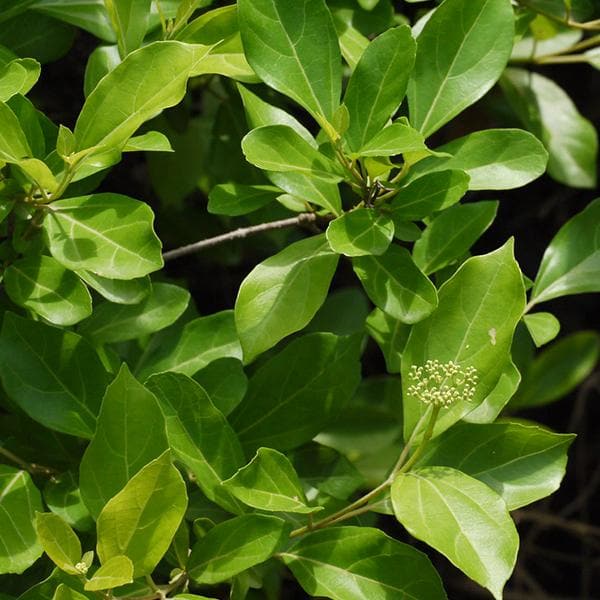
Vaijayanti - Plant
(MRP Inclusive of all taxes)
- Shipping ₹79 for entire order
- Dispatch in 7 days
- Country of origin: India

(MRP Inclusive of all taxes)
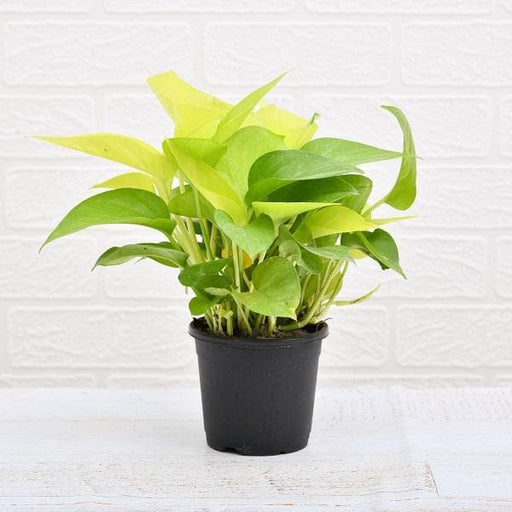 Save 29%
Save 29%
Air Purifier Money Plant with Pot The Air Purifier Money Plant, also known as Pothos or Epipremnum aureum, is a stunning indoor plant that...
View full details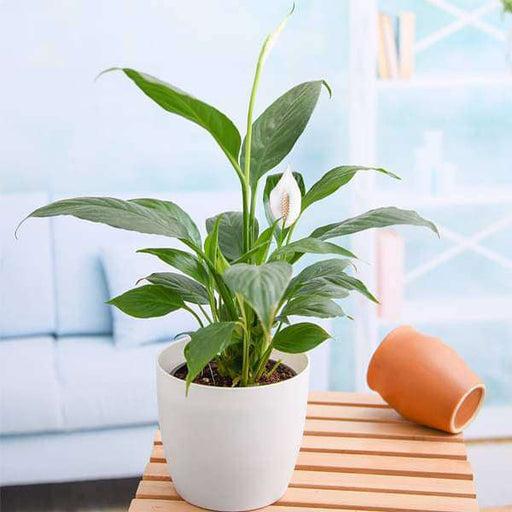
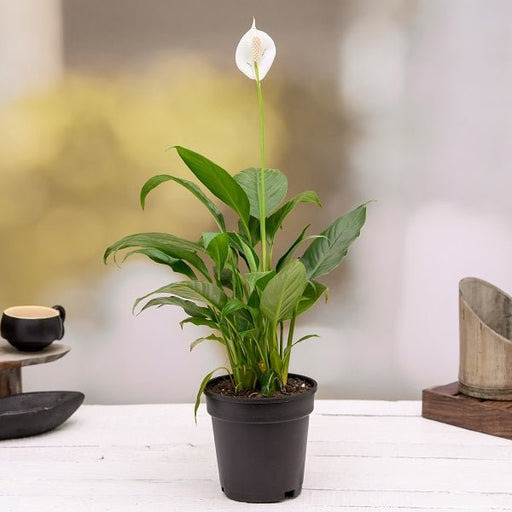 Save up to 15%
Save up to 15%
Peace Lily, Spathiphyllum - Plant The Peace Lily, scientifically known as Spathiphyllum, is a stunning houseplant celebrated for its elegant white...
View full details
 Save 25%
Save 25%
Jasminum sambac, Mogra, Arabian Jasmine - Plant Jasminum sambac, commonly known as Mogra or Arabian Jasmine, is a fragrant flowering plant...
View full details
 Save 18%
Save 18%
Combo Constituents Includes the Parijat Tree (Night-Flowering Jasmine), a culturally significant plant with fragrant flowers. Description The Pari...
View full details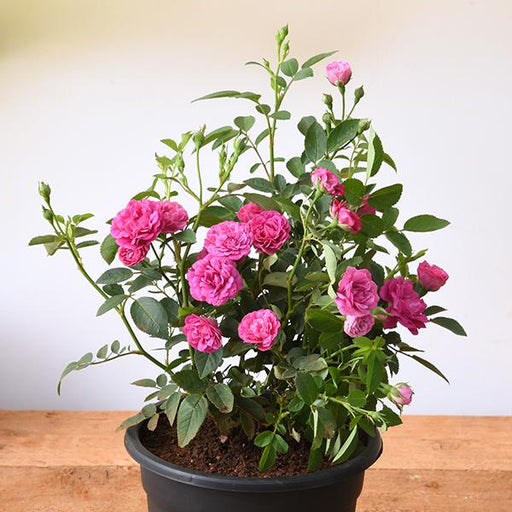
 Save 25%
Save 25%
Miniature Rose, Button Rose (Any Color) - Plant The Miniature Rose, also known as the Button Rose, is a charming and compact flowering plant that ...
View full details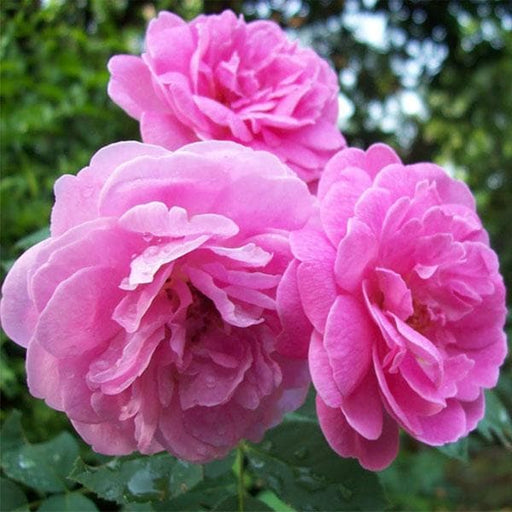 Save 25%
Save 25%
Damascus Rose, Scented Rose (Any Color) - Plant The Damascus Rose, also known as Rosa damascena, is a timeless symbol of beauty and romanc...
View full details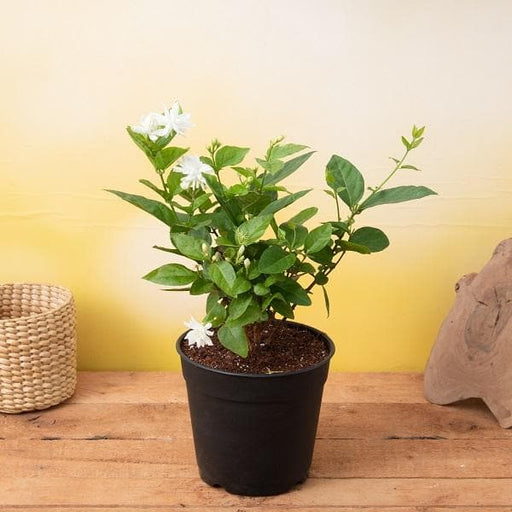
 Save 17%
Save 17%
Beautiful Fragrant Mogra, Arabian Jasmine Plant with Pot The Beautiful Fragrant Mogra, also known as Arabian Jasmine (Jasminum sambac), is...
View full details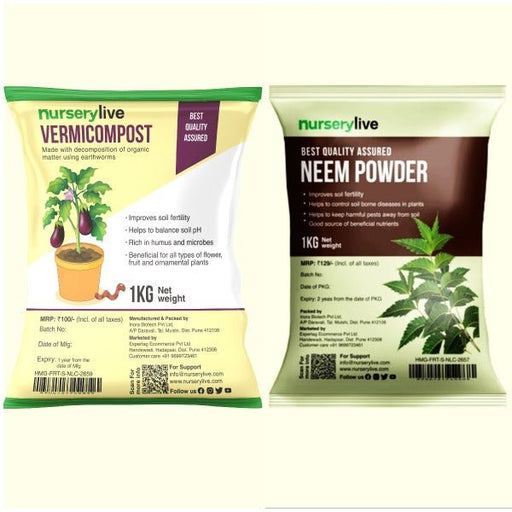 Save 15%
Save 15%
Pack of Vermicompost and Neem Cake for House Plants Transform your indoor garden with our premium Pack of Vermicompost and Neem Cake, spec...
View full details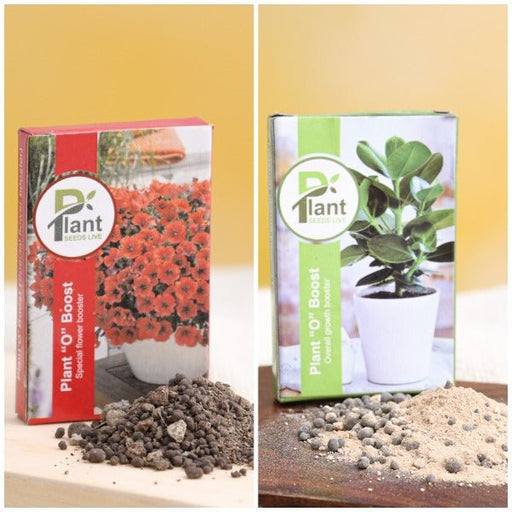
Pack of Plant Growth and Flower Boosters Unlock the full potential of your garden with our Pack of Plant Growth and Flower Boosters! This ...
View full details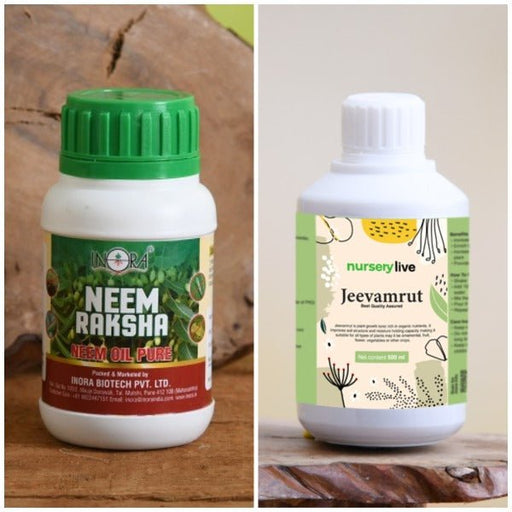 Save 38%
Save 38%
Combo of Jeevamrut and Neem Raksha for Easy Growth and Protection of Houseplants Transform your indoor garden with our exclusive combo of ...
View full details Save 22%
Save 22%
Plant Nutrients Kit (Pack of 16) for a Healthy Garden Transform your garden into a lush paradise with our Plant Nutrients Kit, featuring 1...
View full details Save 16%
Save 16%
Combo of Top Plant Fertilizers Elevate your gardening game with our exclusive Combo of Top Plant Fertilizers, featuring two bags of premiu...
View full details Save 24%
Save 24%
Pack of 4 Additives to Make Soil Healthy and Nutrient Rich Transform your garden into a thriving ecosystem with our Pack of 4 Additives de...
View full details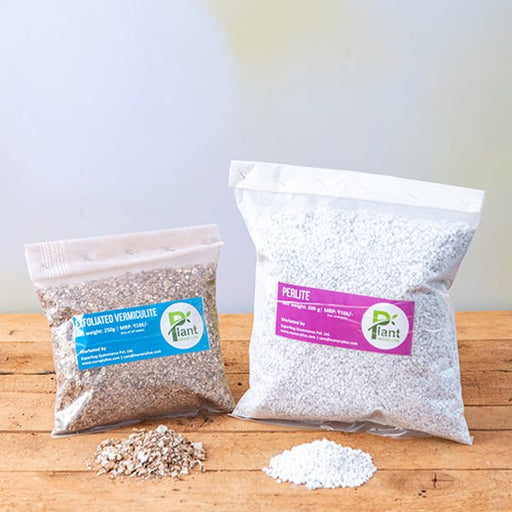 Save 30%
Save 30%
Transform your gardening experience with our premium Combo of Perlite and Vermiculite. This unique blend is designed to enhance soil aeration and ...
View full details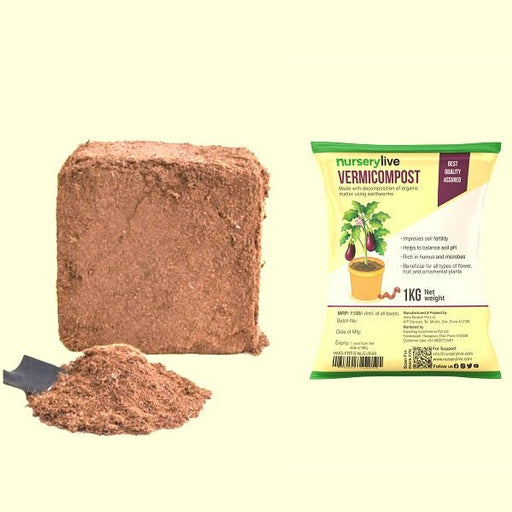 Save 27%
Save 27%
Combo of 2 Vermicompost and Cocopeat - Enrich Your Soil Naturally! Transform your garden into a thriving ecosystem with our Combo of 2 Ver...
View full details
 Save 35%
Save 35%
Best 6 Plants for Perfect Indoor Garden Transform your living space into a lush oasis with our curated collection of the Best 6 Plants for a...
View full details
 Save up to 50%
Save up to 50%
Mini Succulent Garden Pack Transform your space with our Mini Succulent Garden Pack, featuring a delightful collection of 4 any variety beautiful s...
View full details
 Save 30%
Save 30%
5 Best Fragrant Plants Transform your garden or indoor space into a fragrant paradise with our curated selection of the 5 Best Fragrant Plants. Th...
View full details
 Save 24%
Save 24%
Set of 2 Bonsai Looking Grafted Adeniums Transform your indoor or outdoor space with our exquisite Set of 2 Bonsai Looking Grafted Adenium...
View full details Save 45%
Save 45%
Top 4 Die Hard Succulents Pack Transform your indoor or outdoor space with our Top 4 Die Hard Succulents Pack, featuring a curated selecti...
View full details
 Save 30%
Save 30%
5 Best Indoor Plants Pack Transform your living space into a lush oasis with our '5 Best Indoor Plants Pack.' This carefully curated collection fe...
View full details
 Save 25%
Save 25%
Set of 4 Evergreen Air Purifier Plant Pack Transform your indoor space into a lush, green oasis with our Set of 4 Evergreen Air Purifier Pla...
View full details| SrNo | Item Name |
|---|---|
| 1 | Vaijayanti - Plant |
The Vaijayanti plant, scientifically known as Vallaris glabra, is a stunning perennial vine native to the tropical regions of India. Renowned for its fragrant, white flowers that bloom in clusters, this plant is often associated with spiritual significance in Hindu culture, symbolizing purity and devotion. Its lush green foliage and enchanting blossoms make it a popular choice for gardens and landscapes, adding a touch of elegance and charm.
What makes the Vaijayanti plant truly special is its historical significance and cultural relevance. Revered in ancient texts, it is often used in religious ceremonies and festivals. The plant is also known for its medicinal properties, including anti-inflammatory and antioxidant benefits, making it a valuable addition to any herbal garden.
One of the standout features of the Vaijayanti plant is its ability to thrive in various environments, from tropical to subtropical climates. Its resilience and adaptability make it an excellent choice for both novice and experienced gardeners looking to enhance their green spaces.
The Vaijayanti plant, also known as the "Vijayanti" or "Vijayanta," is a botanical superstar that’s not just a pretty face. With its vibrant flowers and lush foliage, it’s like the life of the garden party. This perennial beauty thrives in tropical climates and is often associated with auspiciousness in Indian culture. Plant one, and you might just attract good vibes and positive energy—who wouldn’t want that?
If you’re looking to start your own Vaijayanti adventure, look no further than its seeds. These tiny powerhouses pack a punch of potential, ready to sprout into a stunning plant. Just imagine the joy of nurturing a seed into a full-grown beauty. Plus, planting seeds is like giving Mother Nature a high-five—what’s not to love?
Caring for your Vaijayanti plant is like being a plant parent with a PhD. It requires just the right amount of sunlight, water, and love. Too much of one thing, and you might end up with a sad, droopy plant. But fear not! With a little attention and the right tips, your Vaijayanti will thrive and become the envy of the neighborhood.
The benefits of the Vaijayanti plant are as numerous as its petals. Not only does it beautify your space, but it also has cultural significance in various traditions. It’s believed to bring good luck and prosperity, making it a must-have for anyone looking to sprinkle a little magic into their life. Who knew a plant could be such a good luck charm?
The Vaijayanti flower is like the garden’s version of a celebrity—everyone wants to see it bloom! With its striking colors and unique shape, it’s a showstopper that attracts pollinators and admirers alike. Whether you’re a budding botanist or just someone who appreciates beauty, the Vaijayanti flower is sure to steal the spotlight.
Planting a Vaijayanti is like setting the stage for a grand performance. You need the right soil, the perfect spot, and a sprinkle of patience. Follow these tips, and you’ll have a flourishing plant that’s ready to take center stage in your garden. Remember, every great plant starts with a solid foundation—so dig deep!
In the world of Ayurveda, the Vaijayanti plant is more than just a pretty face; it’s a treasure trove of medicinal properties. Used in various remedies, it’s believed to balance the doshas and promote overall well-being. So, if you’re looking to add a touch of wellness to your life, consider this plant your new best friend.
The Vaijayanti plant is steeped in symbolism, often representing victory and success. In many cultures, it’s seen as a harbinger of good fortune. So, if you’re on a quest for triumph in life, planting a Vaijayanti might just be the secret ingredient you need. Who knew gardening could be so empowering?
Just like ice cream flavors, the Vaijayanti plant comes in various varieties, each with its own unique charm. From different colors to growth habits, there’s a Vaijayanti for every garden personality. Explore these varieties and find the one that speaks to your inner gardener—because variety is the spice of life!
In the realm of Feng Shui, the Vaijayanti plant is a powerhouse of positive energy. Placing it in your home is said to attract prosperity and harmony. So, if you’re looking to enhance your living space’s vibe, consider adding this plant to your decor. It’s like having a personal energy booster right in your living room.
The Vaijayanti plant is a landscaping dream come true. With its eye-catching blooms and lush greenery, it can transform any dull space into a vibrant oasis. Whether you’re designing a garden or sprucing up your yard, this plant is the perfect addition to create a stunning visual impact. Who knew landscaping could be so much fun?
The Vaijayanti plant holds a special place in spiritual practices, often associated with devotion and purity. It’s believed to enhance meditation and bring clarity to the mind. So, if you’re on a spiritual journey, consider incorporating this plant into your practice. It might just help you find your zen amidst the chaos of life.
Vaijayanti, also known as the "Vijayanti" or "Vijayanta" plant, is a stunning flowering vine native to India. With its vibrant blooms and lush foliage, it’s like nature’s confetti! This plant is not just a pretty face; it’s also steeped in cultural significance, often associated with victory and prosperity. Who wouldn’t want that in their garden
Caring for the Vaijayanti plant is like nurturing a diva! It loves bright sunlight but can tolerate partial shade. Water it regularly, but don’t drown it—think of it as a spa day, not a swim meet. Fertilize during the growing season, and watch it flourish like it’s on a botanical runway!
The Vaijayanti plant is a climber, so give it a trellis or a wall to scale like a botanical superhero! It thrives in well-drained soil and loves a sunny spot. Whether in your garden or a pot on the balcony, just ensure it has room to stretch its leafy limbs and show off its blooms!
Absolutely! The Vaijayanti plant can be a fabulous indoor companion, provided it gets enough sunlight. Place it near a bright window, and it’ll be as happy as a clam. Just remember, it’s a climber, so give it something to cling to, or it might start scaling your furniture!
Besides being a visual treat, the Vaijayanti plant is believed to bring good luck and prosperity. It’s like having a little guardian angel in your garden! Additionally, its flowers attract pollinators, making it a friend to bees and butterflies. Who knew beauty could come with such perks
Yes, indeed! Growing Vaijayanti from seeds is like starting a new adventure. Soak the seeds overnight to kickstart germination, then plant them in well-drained soil. Keep them warm and moist, and soon you’ll have little green warriors ready to conquer your garden with their vibrant blooms!
Watering the Vaijayanti plant is a balancing act. Aim for once a week, allowing the soil to dry out between waterings. Think of it as a refreshing drink after a workout—just enough to keep it hydrated without turning it into a soggy mess. Your plant will thank you with a flourish of blooms!
Good news for pet parents! The Vaijayanti plant is generally considered non-toxic to cats and dogs. However, it’s always wise to keep an eye on your furry friends, as they might find the leaves too tempting. Better safe than sorry—after all, we don’t want any plant-related drama in the house!
The Vaijayanti plant is a show-off, blooming from late spring to early fall. Its flowers are like nature’s fireworks, bursting with color and charm. If you provide the right care, you’ll be treated to a spectacular floral display that’ll make your garden the talk of the neighborhood!
Absolutely! Propagating Vaijayanti is as easy as pie. You can take cuttings from healthy stems and place them in water or soil. With a little patience and care, you’ll soon have new plants sprouting up, ready to join the floral fiesta in your garden. It’s like cloning your favorite plant!
Keep an eye out for pesky pests like aphids and spider mites. They can be as annoying as a fly at a picnic! Regularly inspect your plant and use insecticidal soap or neem oil if you spot any uninvited guests. A little vigilance goes a long way in keeping your Vaijayanti thriving!
While the Vaijayanti plant prefers regular watering, it can handle short dry spells like a champ. However, don’t push its limits—think of it as a diva who needs her beauty routine. A little extra care during dry periods will keep it blooming beautifully, ensuring it remains the star of your garden!